Protect Rohingyas from genocide
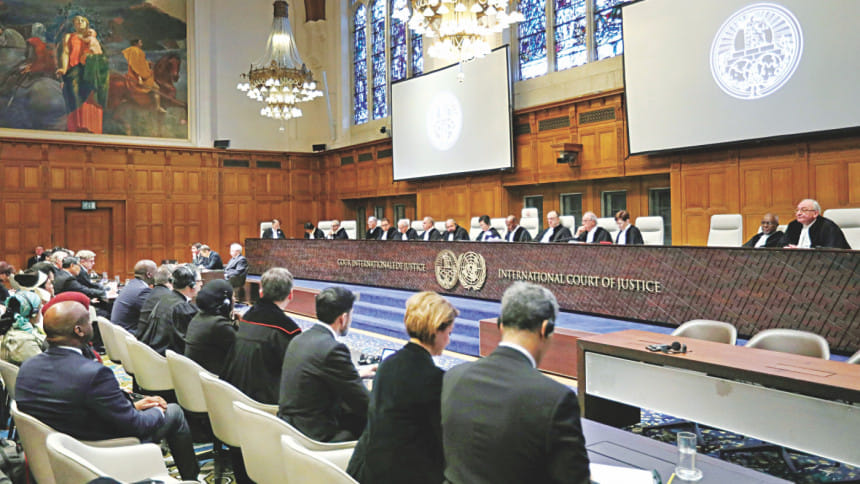
In a landmark ruling, the top court of the United Nations has ordered Myanmar to prevent acts of genocide against the country's persecuted Rohingya minority and to stop destroying evidence.
In a unanimously-ruled order issued by a panel of 17 judges, and read by presiding Judge Abdulaqawi Ahmed Yusuf, the court yesterday upheld the provisions of the 1948 Genocide Convention - saying Myanmar had "caused irreparable damage to the rights of the Rohingya".

The Hague-based International Court of Justice rejected arguments made by Myanmar's civilian leader Aung San Suu Kyi in December and set out urgent steps for the majority Buddhist nation to end the violence.
In November, the Gambia filed a suit against Myanmar alleging it was committing "an ongoing genocide against its minority Muslim Rohingya population". It also asked the court to impose emergency measures following a 2017 military crackdown by Myanmar that sent around 740,000 Rohingyas fleeing into neighbouring Bangladesh.
UN investigators last year branded the bloody expulsion a genocide, and called for the prosecution of top generals -- including the powerful army chief. They also accused one-time democracy icon Suu Kyi and her government of complicity in the atrocities.
According to the Statute of the ICJ, the court has the power to order provisional measures when "irreparable prejudice could be caused to rights which are the subject of judicial proceedings". The court found that the condition of urgency had been met in this case.
Provisional measures are steps to take aimed at preventing further harm and comes as the first step in the legal case.
Judge Yusuf said that "the court was of the opinion that the Rohingya in Myanmar remain extremely vulnerable" and needed to be protected from further bloodshed.
Thousands are suspected to have been killed in the crackdown and refugees brought widespread reports of rape and arson by Myanmar's military and local militias.
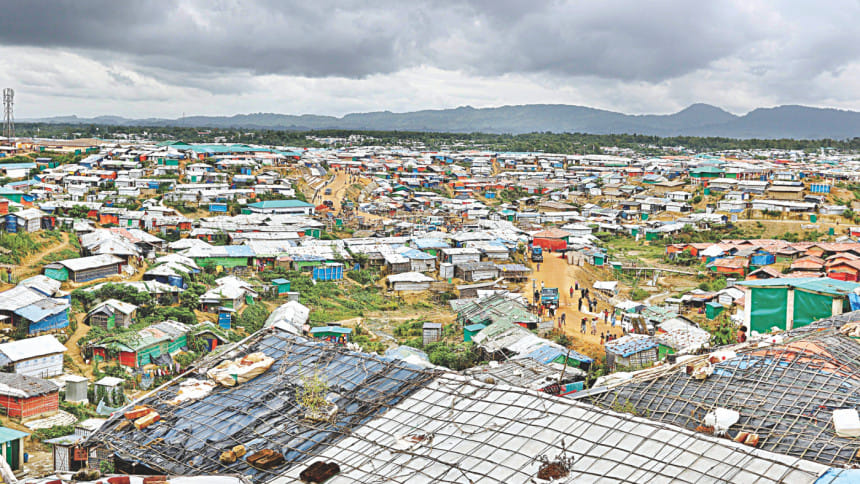
In its application to the court, the Gambia requested six provisional measures requiring Myanmar to act "with immediate effect" to prevent further genocide of the Rohingya group and to take steps not to destroy or render inaccessible any evidence already described in the application.
The Gambia also urged both sides not to take any action which might aggravate the dispute or render it more difficult to resolve, and to provide a report to the court on implementing such measures.
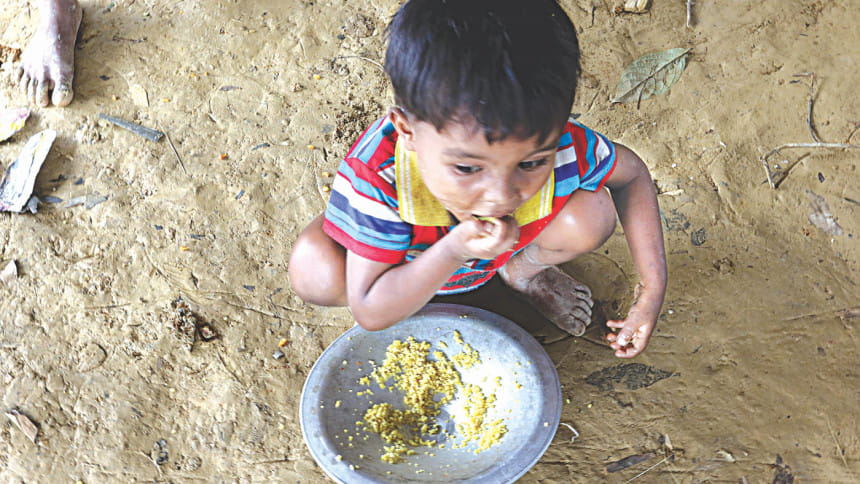
The Gambia later also requested Myanmar cooperate with United Nations bodies that seek to investigate the alleged acts.
Judge Yusuf said the court was not constrained to ordering the measures requested by the Gambia and that it had the power to order additional measures, reported Al Jazeera. Yusuf further said that, in ordering provisional measures in this case, it was not necessary to decide on the question of the presence of genocidal intent, as claimed by Myanmar.
The court ordered Myanmar should take all measures within its power to prevent the commission of all acts within the scope of article two of the Genocide Convention. It particularly cited clause one - killing members of the group, clause two - causing serious bodily or mental harm to members of the group, clause three - deliberately inflicting on the group conditions of life calculated to bring about its destruction in whole or in part, and clause four - imposing measures intended to prevent births within the group.
Myanmar must further ensure that its military does not commit genocide or attempts to commit genocide or conspires to commit genocide. Myanmar was also ordered to prevent the destruction of evidence and to ensure the preservation of evidence related to the alleged genocide.
Judge Yusuf also said the court was not satisfied with Myanmar's own efforts "to facilitate the return of Rohingya refugees present in Bangladesh, to promote ethnic reconciliation, peace and stability in Rakhine State, and to make its military accountable for violations of international humanitarian and human rights law".
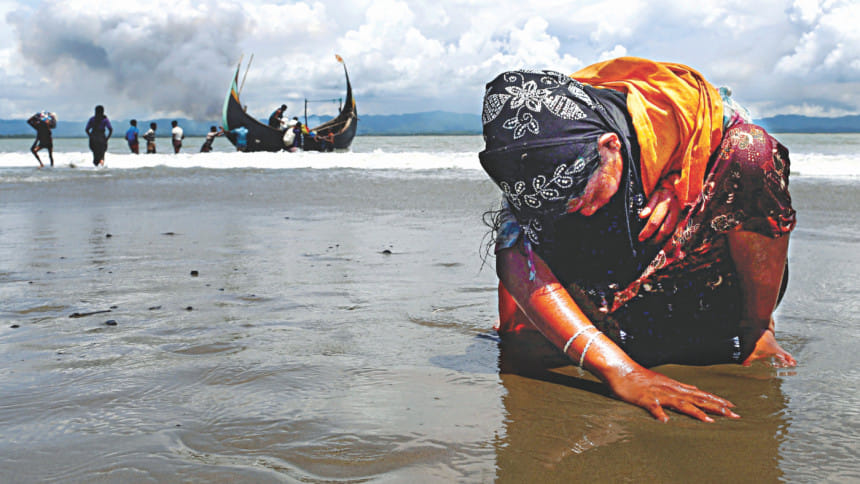
The court ordered Myanmar to report back within four months, and then every six months after that, reported AFP.
Gambian justice minister Abubacarr Tambadou hailed the court's decision to uphold his country's case, which was supported by the 57-nation Organisation for Islamic Cooperation, Canada and the Netherlands.
"This is a historic day today, not just for international law, for the international community, but especially for the Rohingya," he told reporters outside the court.
Nobel peace laureate Suu Kyi -- who was widely criticised for her defence of the same military that once locked her up for years -- said yesterday that some Rohingya refugees may have "exaggerated" the extent of the abuses.
"The international justice system may not yet be equipped to filter out misleading information before shadows of incrimination are cast over entire nations and governments," she wrote in an opinion piece in the Financial Times published ahead of the ruling.
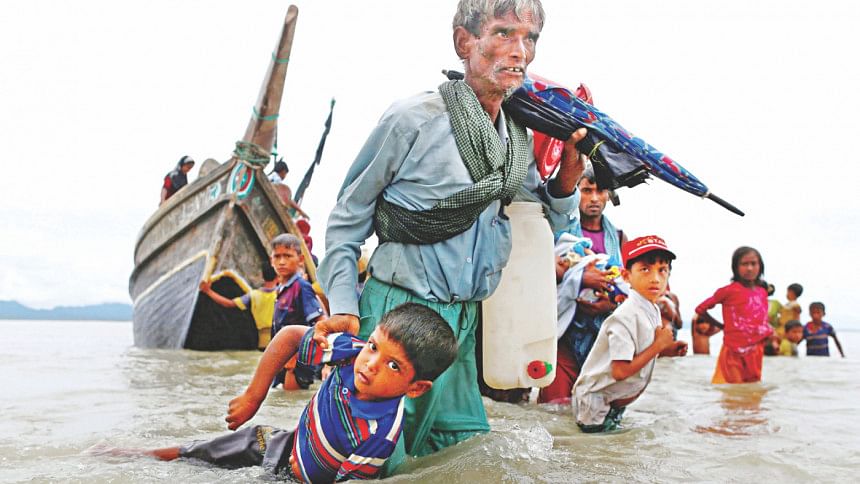
Suu Kyi also said Myanmar should have time to act on the results of an internal investigation by the country, which this week admitted war crimes may have been committed but ruled out genocide.
The military dodged questions in the capital Naypyidaw yesterday morning, with a spokesman telling reporters it would simply "follow the instructions of the government".
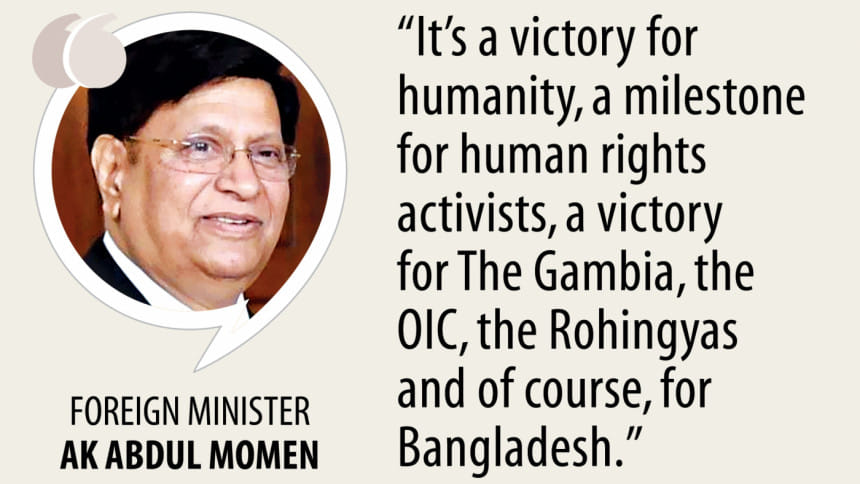
Legal experts have applauded the court's decision. Reed Brody, commissioner at the International Commission of Jurists, said to Al Jazeera: "This is a great day for the hundreds of thousands of Rohingyas who have been displaced, killed and raped. The UN's highest court has recognised their suffering."
Brody added: "There is still a long way to go before this order becomes reality and we see actual improvements in the lives of the Rohingyas, but today this persecuted people will have a first taste of justice. This is further a stunning rebuke of Aung San Suu Kyi, especially after she went personally to The Hague to defend the actions of the Myanmar military. There will now be huge pressure on the government to comply with the court's ruling."
Brody says the fact that the decision was unanimous will give additional weight to the court's measures.
According to Gleider Hernandez, professor at Catholic University of Leuven, the ICJ has made clear that it intends to supervise the implementation of the judgement. He said "Though not unprecedented, the regularity with which Myanmar had to submit reports is striking."
Rights groups also hailed the ICJ ruling while calling on the international community to put pressure on Suu Kyi and Myanmar.
"Today's decision sends a message to Myanmar's senior officials: the world will not tolerate their atrocities," Amnesty International's Regional Director Nicholas Bequelin said.
Although ICJ rulings are final and binding, countries have occasionally flouted them, and the court has no formal mechanism to enforce them.
However the "significance... shouldn't be written off," said Cecily Rose, assistant professor in international law at Leiden University in the Netherlands.
"The court's orders and judgments tend to carry relatively great authority or legitimacy. Even though the situation in Myanmar is highly political and fragile, international law still plays a role by informing decision-making among international actors," she told AFP.
Param-Preet Singh, associate international justice director at Human Rights Watch, hailed the ruling as a landmark step.
"The ICJ order to Myanmar to take concrete steps to prevent the genocide of the Rohingya is a landmark step to stop further atrocities against one of the world's most persecuted people," he said.
"Concerned governments and UN bodies should now weigh in to ensure that the order is enforced as the genocide case moves forward."

 For all latest news, follow The Daily Star's Google News channel.
For all latest news, follow The Daily Star's Google News channel. 



Comments